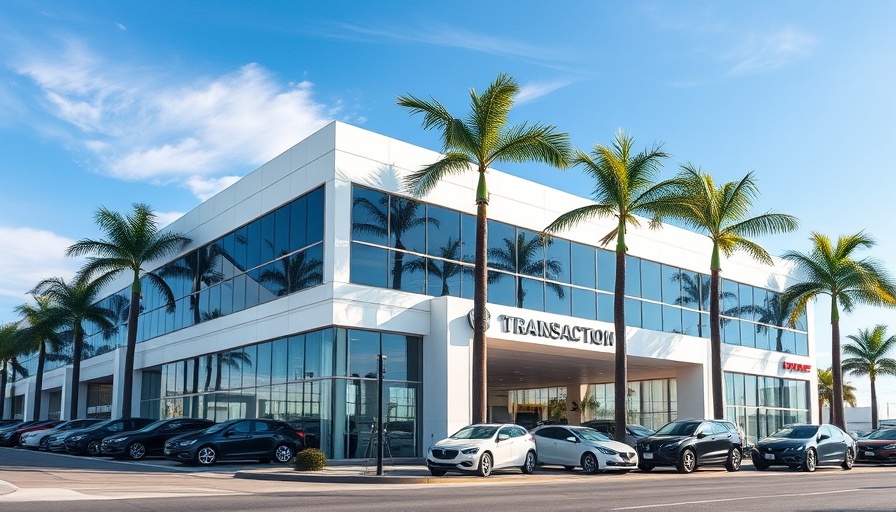
Nissan's Commitment to Green Steel: A Game Changer in Automotive Sustainability
Nissan Motor Co., Ltd. is on a path towards a greener future, recently announcing a significant expansion of its use of low-CO2-emission steel in Japan. Set to grow the proportion of this sustainable material fivefold by the fiscal year 2025 compared to 2023, Nissan is making strides in its ambitious goal of reducing CO2 emissions across its production processes. This initiative is not just a temporary buzz; it's a pivotal part of Nissan's comprehensive strategy to achieve carbon neutrality in the coming decades.
The Significance of Green Steel in Automotive Production
Steel parts constitute around 60% of a vehicle's weight, making the transition to green steel critical for reducing the automotive industry's carbon footprint. By switching from traditional blast furnaces to electric arc furnaces and utilizing low-carbon options, Nissan aims to cut down on emissions that begin at raw material extraction and continue through manufacturing, usage, and the recycling process of vehicles.
Nissan's Strategic Partnerships with Leading Steel Producers
To bolster this initiative, Nissan is collaborating with several prominent steel makers, including Kobe Steel, Nippon Steel Corporation, and JFE Steel Corporation. These companies provide innovative green steel products that support Nissan's goals through a mass-balance approach. The implementation of Kobenable® Steel, NSCarbolex®, JGreeX®, and others reflects a united front in advancing sustainable practices within the automotive sector.
Connecting Sustainability to Business Strategy
Nissan's commitment to green steel is not merely an environmental decision; it's a proactive investment in futureproofing their business. As consumer sentiment shifts towards sustainability, establishing a foundation in environmentally friendly practices will enhance brand loyalty and potentially drive sales among increasingly eco-conscious consumers.
Future Predictions: The Path to Carbon Neutrality
Nissan is aiming for a 30% reduction in CO2 emissions throughout the product lifecycle by 2030, with an ultimate goal of achieving full carbon neutrality by 2050. This ambitious road map not only positions Nissan as an industry leader in sustainability but also sets a benchmark for others in the automotive sector. By taking meaningful steps towards a cleaner, safer, and more inclusive world, Nissan demonstrates that sustainability can coexist with robust business success.
In summary, Nissan's expansion in the use of green steel is an essential part of its larger goal of achieving environmental responsibility while ensuring business longevity. As the company continues to innovate and prioritize sustainable practices, it may very well set the stage for a transformative shift in how the entire automotive industry approaches sustainability in production.
 Add Row
Add Row  Add
Add 

 Add Row
Add Row  Add Element
Add Element 




Write A Comment